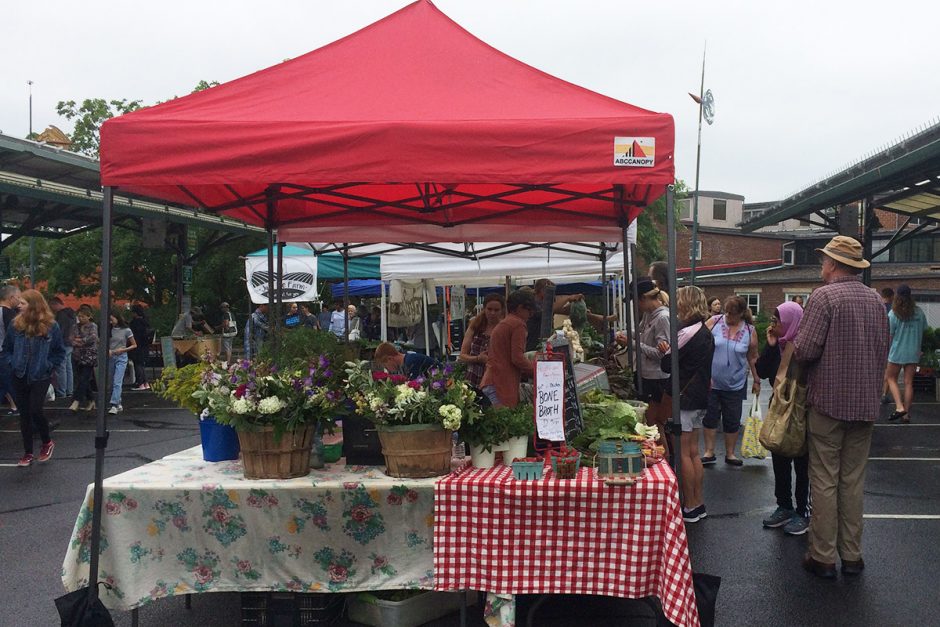
The Bloomington Community Farmers’ Market is open every Saturday, April-November, featuring over 100 vendors selling home-grown foods, plants and handcrafted goods. (Kayte Young/WFIU)
So this whole idea of these kinds of farmers markets-at which people value diversity-become white spaces, I think has to do with liberal white society's discomfort with race more generally.
This week we're devoting most of the show to a discussion of farmers markets and whiteness. We'll be speaking with farmers, shoppers, organizers and authors about the culture of farmers markets and some of the barriers people of color can face in participating in farmers' markets, as vendors or as customers.
People shop at the Bloomington Community Farmers' Market for many different reasons-to support local farmers, to socialize, to "buy local," to enjoy freshly grown foods.
In foodie circles, there's a lot of talk about the value of "knowing your farmer."
Last week, shoppers at the Farmers' Market in Bloomington had to consider what it really means to "know your farmer."
As they walked in, they might have been handed a flyer. The flyers were alerting shoppers that one of the family farms selling vegetables at market allegedly has ties to the white supremacist group Identity Evropa, also known as American Identity Movement.
When I arrived, I met Abby Ang, who was handing out flyers from the Democracy for Monroe County table, in a section of the market known as Info Alley, The flyer was intended to let people know about the farmers and the booth in question.
A lot of people were shocked to think that a vendor at this market would identify that way. Others were not shocked at all.
And it got us thinking about the relationship between farmers markets and whiteness.
So we decided to talk with people at the market- growers, activists and shoppers about the culture of the market.
I asked if they thought the market seemed accessible to people of color, both as growers and as shoppers.
We also spoke with Sharonna Moore with the Indiana Black Farmers Co-op about why the organization started a Black Farmers Market on the East side of Indianapolis
And we asked Alison Alkon to weigh in. Alison Alkon is an Associate Professor of Anthropology at the University of the Pacific and she teaches in the food studies program there. She's the author of Black White and Green: Farmers Markets, Race, and the Green Economy, a study focussed on the racial dynamics of food politics at a couple of farmers markets in California.
We know this conversation is incomplete, and we hope it sparkes further discussion in these communities.
Recommended reading/listening
Freedom Farmers: Agricultural Resistance and the Black Freedom Movement
Farming While Black: Soul Fire Farm's Practical Guide to Liberation on the Land
Farming While Black-an interview with Leah Penniman (on Earth Eats)
Fannie Lou Hamer's Freedom Farm Cooperative (on Earth Eats)
What happened to America's Black Farmers (Grist)
Losing Ground (Reveal podcast)
Seeing White Series (Scene on Radio podcast)
Cultivating Food Justice: Race, Class and Sustainability
Weighing In: Obesity, Food Justice and the Limits of Capitalism
New Research Explores the Ongoing Impact of Racism on the U.S. Farming Landscape (Civil Eats)
Racist Sandwich Podcast: Food, Race, Class, Gender
-
Special thanks to Alex Chambers for production collaboration and editing support for this episode.
The Earth Eats' theme music is composed by Erin Tobey and performed by Erin and Matt Tobey.












